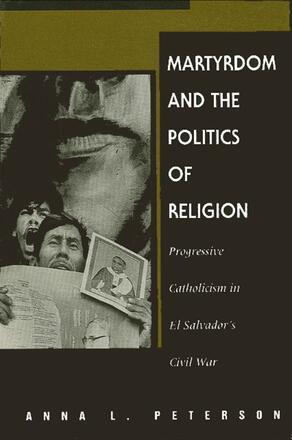
Martyrdom and the Politics of Religion
Progressive Catholicism in El Salvador's Civil War
Alternative formats available from:
By examining the ways that Catholic activists responded to political violence in El Salvador during the 1970s and 1980s, this book documents the beliefs and history of an important religious community, and explores the nature of religion's role in political ideology and mobilization.
Description
Martyrdom and the Politics of Religion explores the ways that Salvadoran Catholics sought to make sense of political violence in their country in the 1970s and 1980s by constructing a theological ethics that could both explain repression in religious terms and propose specific responses to violence. Drawing on extensive fieldwork, the book highlights the ways that progressive Catholicism offered a justification and tools for political resistance in the face of extraordinary destruction. Using the case of Catholicism in El Salvador, the book explores the nature of religious responses to social crisis and the ways that ordinary believers construct and strive to live by ethical systems. By highlighting the importance of theological belief, of narrative, and of religious rationality in political mobilization, it touches questions of general interest to readers concerned with the social role of religion and ethics.
Anna L. Peterson is Assistant Professor in the Religion Department of the University of Florida, Gainesville.
Reviews
"The author employs research that is both methodologically and conceptually innovative. She is working where the field of religion and politics in Latin America needs to be headed: research that focuses on the participants themselves and not just an institutional analysis of church and state. " -- Michael A. Burdick, Center for the Study of Religion, University of California, Santa Barbara
"This is a revelatory work. The reader is provided with fresh and unusual insights. There are popular accounts of life and death in Central America but none, to my knowledge, that approach the subject from the theological depth which the author possesses. " -- Edward L. Cleary, Providence College